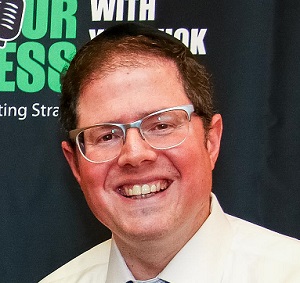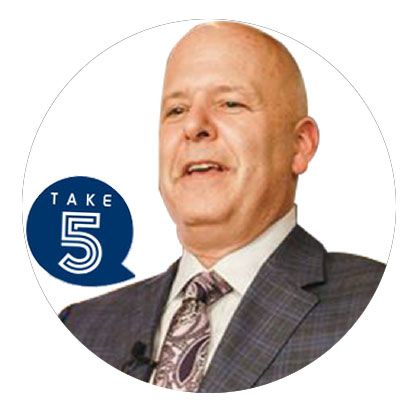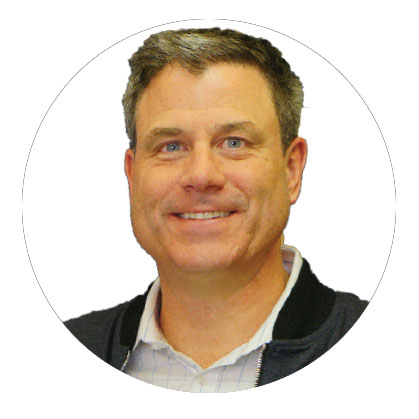If It Can Happen to Kodak…


About the Expert:
Branding expert Allen Adamson worked at a number of Fortune 500 companies before cofounding Metaforce, a marketing agency that helps businesses understand all the forces at work inside and outside their organizations. Now managing partner at Metaforce, Allen Adamson has also written four books on branding and staying relevant, including the latest, Shift Ahead: How the Best Companies Stay Relevant in a Fast-Changing World, coauthored with Joel Steckel.
If it can happen to Kodak... or BlackBerry... or Blockbuster, it can happen to you.
For his most recent book Shift Ahead, Adamson and coauthor Steckel researched over 100 companies, big and small, nonprofit and for profits, to discover what’s at the root of falling behind.
A key fault? Arrogance.
“No matter how successful you are, if you think you arrived at your destination and you are ‘King of the castle,’ you will undoubtedly find yourself as tomorrow’s Kodak,” Adamson predicts.
The BlackBerry folks considered the Apple iPhone a “toy,” says Adamson. No one serious about business would type with their fingers on a screen, with no keyboard, they assumed — wrongly. Because of their overconfidence in their product, they missed an opportunity to shift to the trend — and they lost out.
Adamson recalls the well-known adage from Andy Grove, former CEO at Intel: “Only the paranoid survive.” “Most of the companies that had fallen behind had a degree of arrogance and overconfidence that prevented them from taking their competition or new entrants seriously. They were not worried about it. Not paranoid enough.”
Resist the Routine.
To stay ahead, you always need fresh eyes, Adamson warns.
He compares it to how you used to have to drive a car. “When I learned to drive, [my car had] a manual transmission. You had to shift gears to change the speed — you had to listen to the engine, pay attention to the road, the slope” — unlike today’s cars, which practically drive themselves.
Many businesses today operate like modern vehicles. “People get accustomed to accepting things. They get into a routine and are unable to see change happening in front of them…. Part of success is getting out of cruise control and paying attention to the road and looking at everything with fresh eyes, smelling what’s around you, versus zoning out.”
Bill Marriott of Marriott Hotels is a champion of this.
“His feet never touched the desk,” says Adamson. “He spent all his time in the hotels talking to the front door people, fluffing the pillows, tasting the food.”
In many cases, the fresh eyes are from a young person who points out how a process or product or system could be different and better. When Adamson was at the airport with his son, waiting for his car rental, “my son looked at me like I was from Mars — ‘Dad, why are you renting a car?!’ ” Adamson had never considered how he would get to his destination without renting a car, although his son had some ideas — Uber, driverless car, car-sharing.
“Part of [keeping a fresh perspective] is having somebody in your ear saying, ‘What do you mean, rent a car? Drink a carbonated sugar drink?’ ”
Don’t Dawdle — Trust Your Instincts and Jump.
Companies today are so risk averse, Adamson bemoans. “They won’t make a left turn until they have 100 pieces of data that say go left. By then, everyone knows.”
And if everyone is saying you need to change, you’re too late. “Change happens with an S curve,” he describes. “It starts off slow, and people don’t pay attention, then it takes off.”
“By the time a company decides it’s time to go left, there’s no more gas in the tank.”
They don’t have the resources anymore because business has been declining for so long, there’s no money or talent left — or both.
Barnes and Noble, for instance, waited too long to compete with Amazon by going online. And then again, took too long to release their Nook as a reading alternative.
“The winners in shifting ahead have long-range sensors and see a few trends that they think are right,” Adamson says. They don’t wait for all the facts — most of the time, there won’t be any facts, just a judgment call.
Take John Sexton, former president of New York University, for example. He saw far beyond the typical university setting of campus and walls and took revolutionary steps to integrate NYU into New York City, to tie learning to practicality, and to pursue more globalized education by setting up branches internationally.
Play More Golf Than Tennis.
In tennis, the focus is on the competition; your main objective is to hit the ball when your opponent is not. In contrast, when you play golf, you pay more attention to the ball, the wind, the terrain — the conditions of your playing field. The latter is how you need to approach business, Adamson asserts.
Most companies mistakenly watch their competition instead of looking at what’s happening around them.
“When I was working with Pepsi, all the conversations were about Coke,” he reports. Yet they were looking in the wrong direction. “Pepsi is not getting their lunch eaten by Coke; it’s happening by small niche brands.”
You’re more likely to get overtaken by someone coming from behind you or from the side, not from the person most like you, Adamson shares. Look out for competition in related but different categories, the “fringe” of the market, and pay attention to what’s happening in your customer’s lives. Remember that you’re there for your customers, not to beat your competition.
Be Brilliant, Not Average.
Too many marketers do many things averagely, says Adamson. “But in today’s word-of-mouth world, no one shares average. If you’re doing everything averagely — you have a nice-looking website, offer a nice-looking package — you won’t break through.”
Instead, Adamson recommends, choose to do the two or three things you can do brilliantly, instead of five things that are “sort of okay.”
Case in point? Sony — “the Apple of its day.”
The founder of Sony had a vision for the company — a Japanese word meaning goose bumps, Adamson explains. “When I first touched a Sony product, it would give me goose bumps — the sound was so clear, the picture was so good.”
Over time, Sony started making products like shower radios — not exactly goose bump material — and it was affecting their business. By making decent, average products, they lost what made them stand out, their core relevant differentiation.
To come back, they’ve cut their product line, only putting Sony’s name on products that will give you goose bumps. Time will tell, however, if they turned back in time.
(Originally featured in Mishpacha, Issue 718)
Oops! We could not locate your form.













